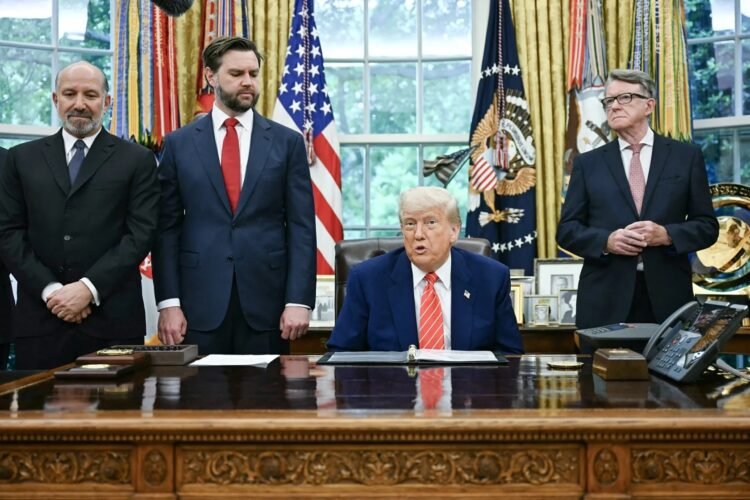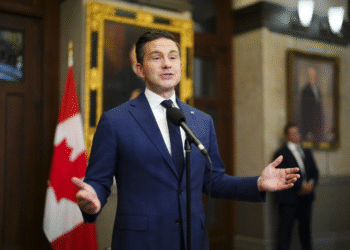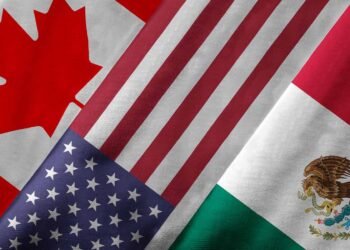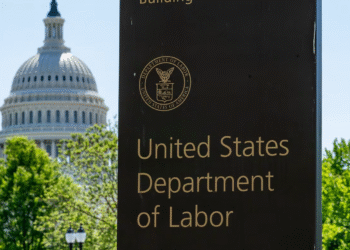Washington, D.C. — President Donald Trump’s preliminary trade agreement with the United Kingdom is sending ripples through the global trade landscape — and setting the tone for future negotiations with key partners like Canada.
While the deal remains unfinished, its broad outlines reflect Trump’s evolving approach: an openness to selective tariff reductions without abandoning duties altogether. “The final details are being written up,” Trump said Thursday from the Oval Office, where he touted the deal as a win for American ethanol and beef exporters.
The agreement would maintain the U.S.’s baseline 10 per cent tariffs on most U.K. imports, though steel and aluminum duties will be lifted and automotive tariffs capped at 10 per cent for a quota of 100,000 vehicles, according to British officials.
The Trump administration’s willingness to negotiate has caught attention in Ottawa. Fen Osler Hampson, co-chair of a Canada-U.S. relations expert group, said the U.K. deal “shows that the Trump administration is amenable to negotiation” — a potential signpost for how it may approach Canadian trade issues.
Yet, not all signs are positive. Canada remains under sweeping U.S. tariffs on steel, aluminum and automobiles, and Trump’s economic team has tied some measures to non-trade concerns, including fentanyl trafficking. Although some tariffs were eased for CUSMA-compliant imports, uncertainty remains about long-term access and fairness.
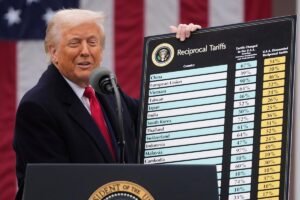
Critics are already raising concerns about unequal treatment. Matt Blunt, president of the American Automotive Policy Council, warned that U.K. carmakers now enjoy better terms than Canada and Mexico, even with far less U.S. content in their vehicles. “We hope this preferential access does not set a precedent,” he said.
Trump’s first-term trade pact with Canada and Mexico, CUSMA, is scheduled for review next year. While the president described it as “still very effective” during a meeting this week with Canadian Prime Minister Mark Carney, experts caution that the spirit of free trade has given way to a new era of “managed trade.”
Christopher Sands of Johns Hopkins University’s Center for Canadian Studies said the improved tone between Carney and Trump — after years of tensions under former PM Justin Trudeau — bodes well for talks. “A combination of persistence and professionalism worked for the U.K. It might work for Canada too,” he said.
Still, Canadian expectations should remain measured. Henry Olsen, a senior fellow at the Public Policy Center, reminded a Washington panel this week that Trump remains fixated on eliminating trade deficits. “Reducing the U.S.-Canada deficit — especially with energy exports in the mix — will be a hard task for Carney,” Olsen noted.
As Trump’s trade policies continue reshaping global norms, Canada faces a complex task: defending access to the U.S. market while navigating a shifting geopolitical terrain driven more by leverage than by partnership.

 English
English













































